Copycatting in mobile games: does it really worth the effort?

The problem of copying has probably existed since the very first occurrence of creativity - in every industry there always are people willing to get rich quick and not to make much effort. At first sight, cloning might seem like an easy way to gain money - the only effort of you is to find the good prototype that will be keeping you "inspired". But is it really that simple? Is copying in mobile games - a job brining the decent income, or is it a dangerous slope to slide on? Let's discover the latest examples of copycatting popular mobile games and find out what publishers got from taking inspiration (or stealing?) results of other people's work.
Through the history of mobile development, we may see a lot of examples of developers taking inspiration from their favorite applications. Young mobile game developers inspired by iconic video games create their own brilliant projects: for example, Pascal's Wager game - mobile action RPG that been recently presented at ChinaJoy - earned critics approval despite the obvious resemblance to the famous Dark Souls. That said, people do not perceive taking inspiration as something illegal or reprehensible as long as the developer brings unique details to the game, and does not try to copy gameplay in a trivial way. And as the difference between stealing and taking inspiration is very subtle, the difference between clones and fakes is too.
The category of hyper casual games seems to suffer the most from copying. Those games are highly popular now and the simple gameplay is easy to replicate. Successful hyper-casual games of large publishers are often copied not only by no-name developers who want to capitalize on someone else's product. We can often find similar games in the portfolio of two well-known publishers.
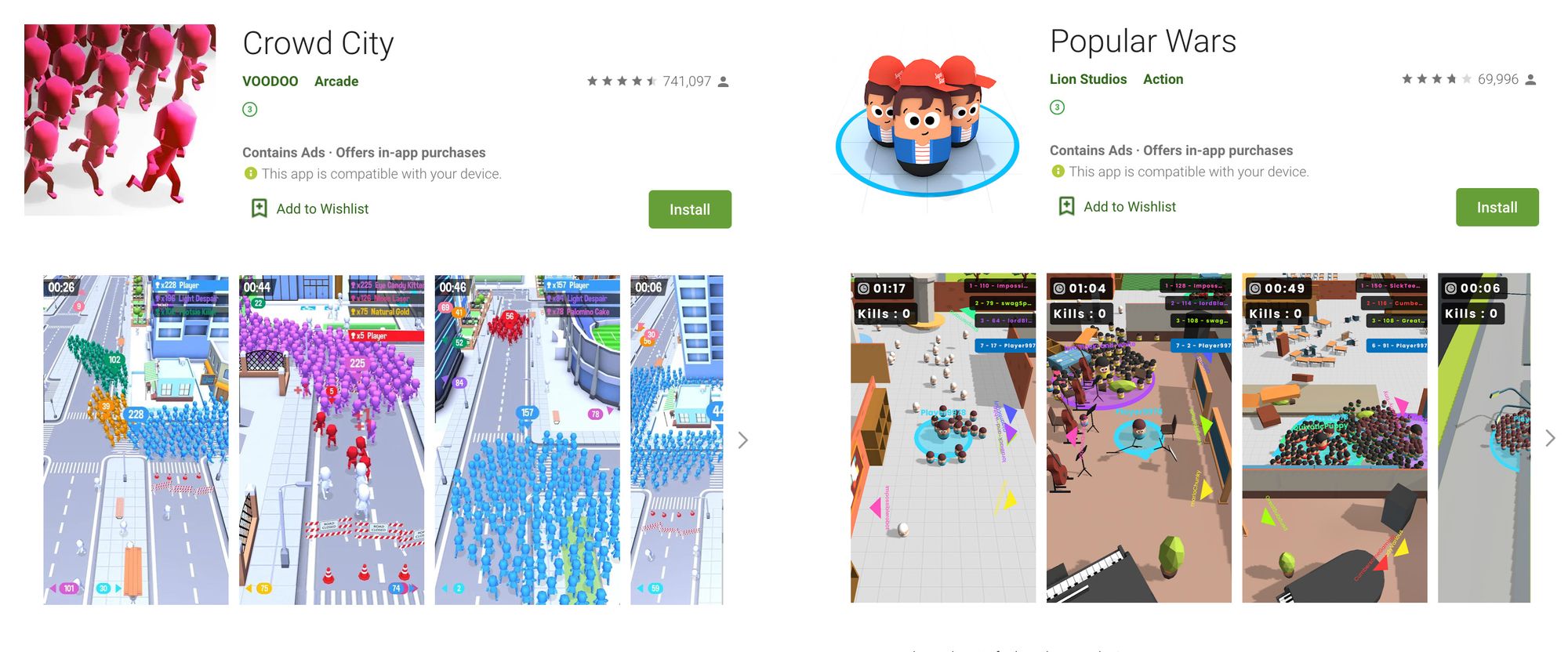
However, the audience don't feel cheated by the similarity of those games: it both have excellent ratings and a large number of DAU/MAU.
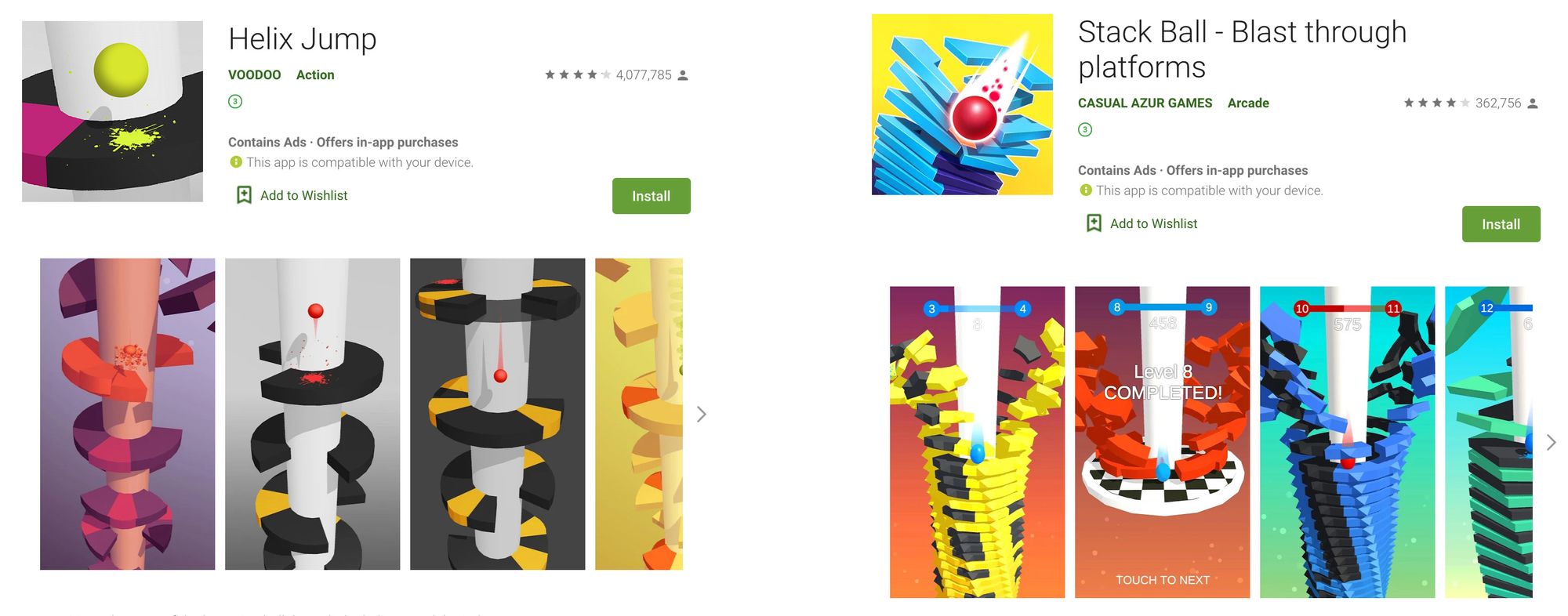
Sometimes developers are really taking inspiration from not all the game but any elements of their competitors games.
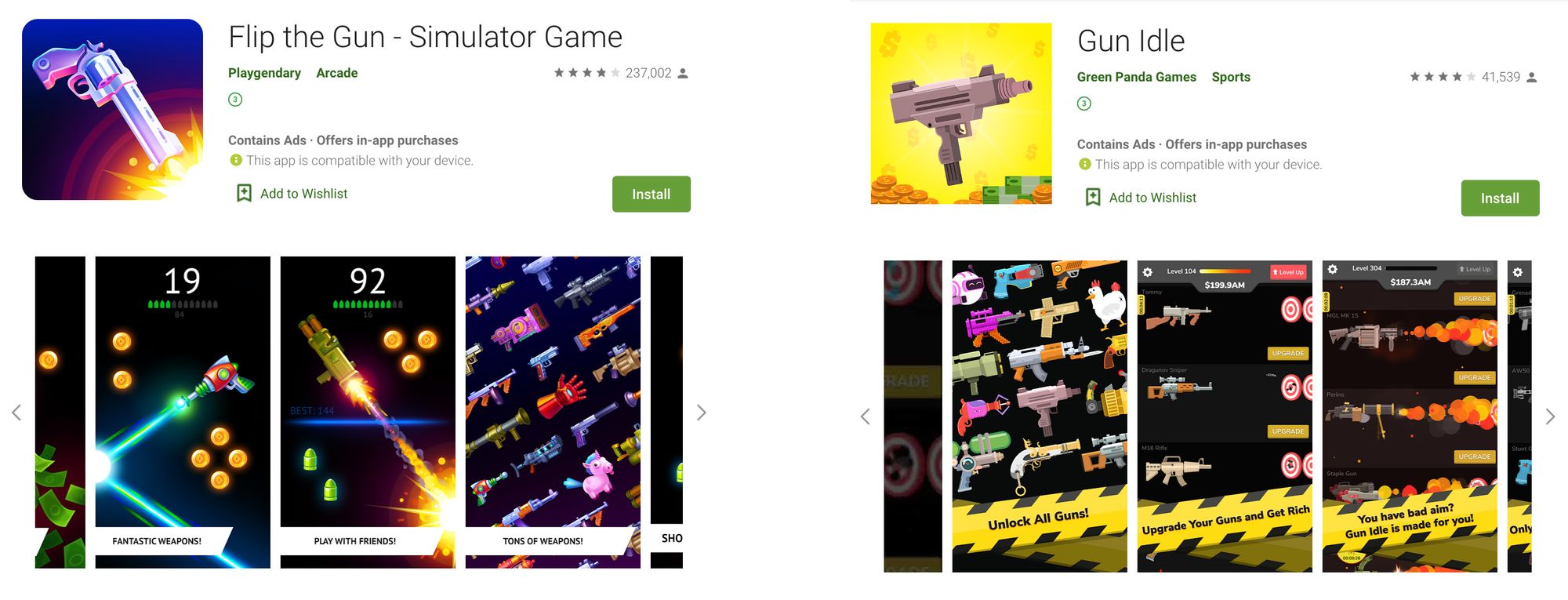
And what about developers copying every idea, style, gameplay, store profile and even the name of the application? Those are fake games and usually don't live long. For example, Aquarark.io game, recently released by a major publisher Voodoo, instantly became viral, giving rise to dozens of fakes.
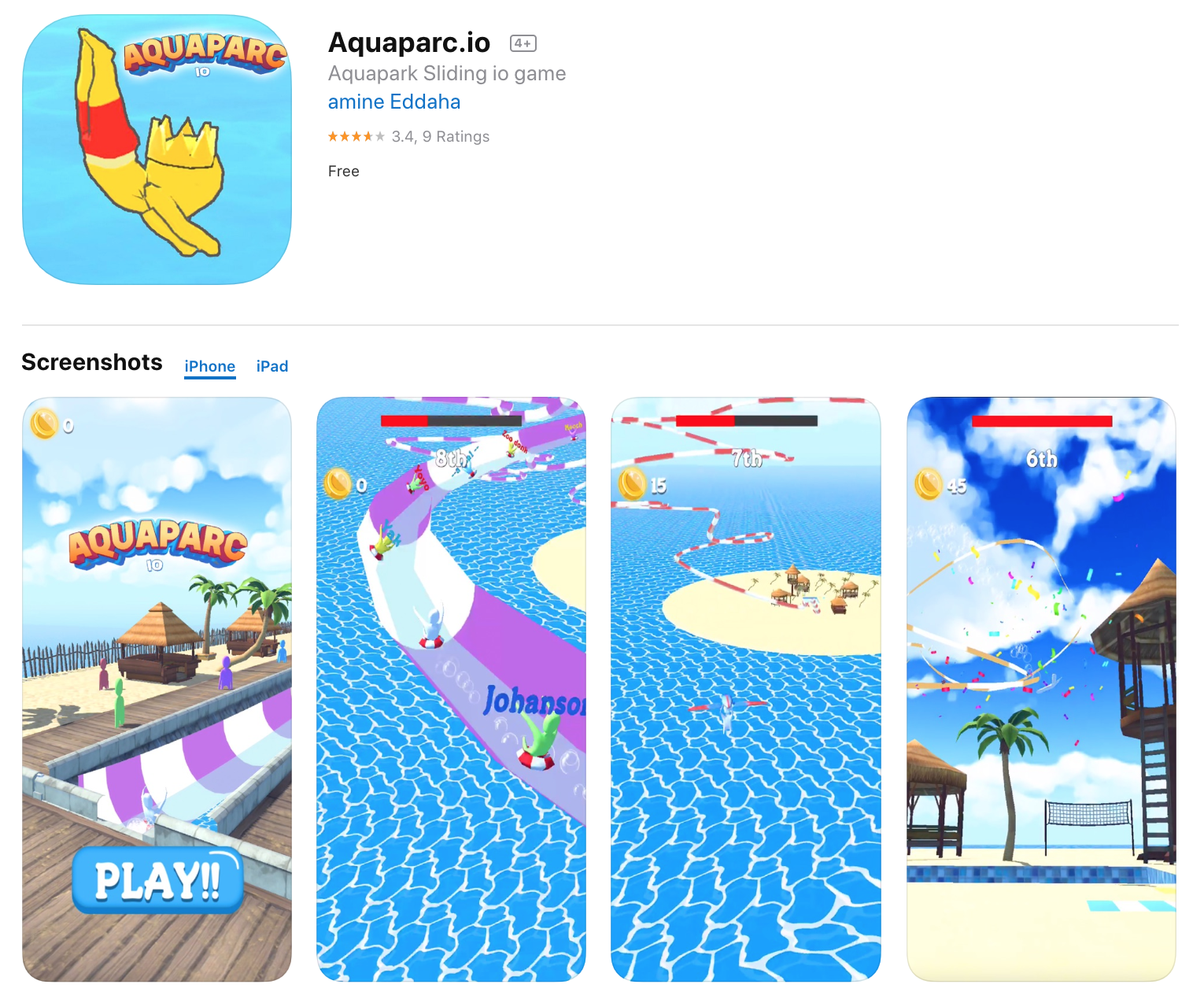
In this case, the developer did not take care to make his game unique or at least not a complete copy of Aquapark.io. Instead, willing to make an instant profit, the developer ruthlessly copies every inch of someone else's game. So was it worth it?
The store quickly takes steps to delete fake applications. Many copies have already been removed from the store, and those that still remain do not receive even a tenth of the audience that the original application has.
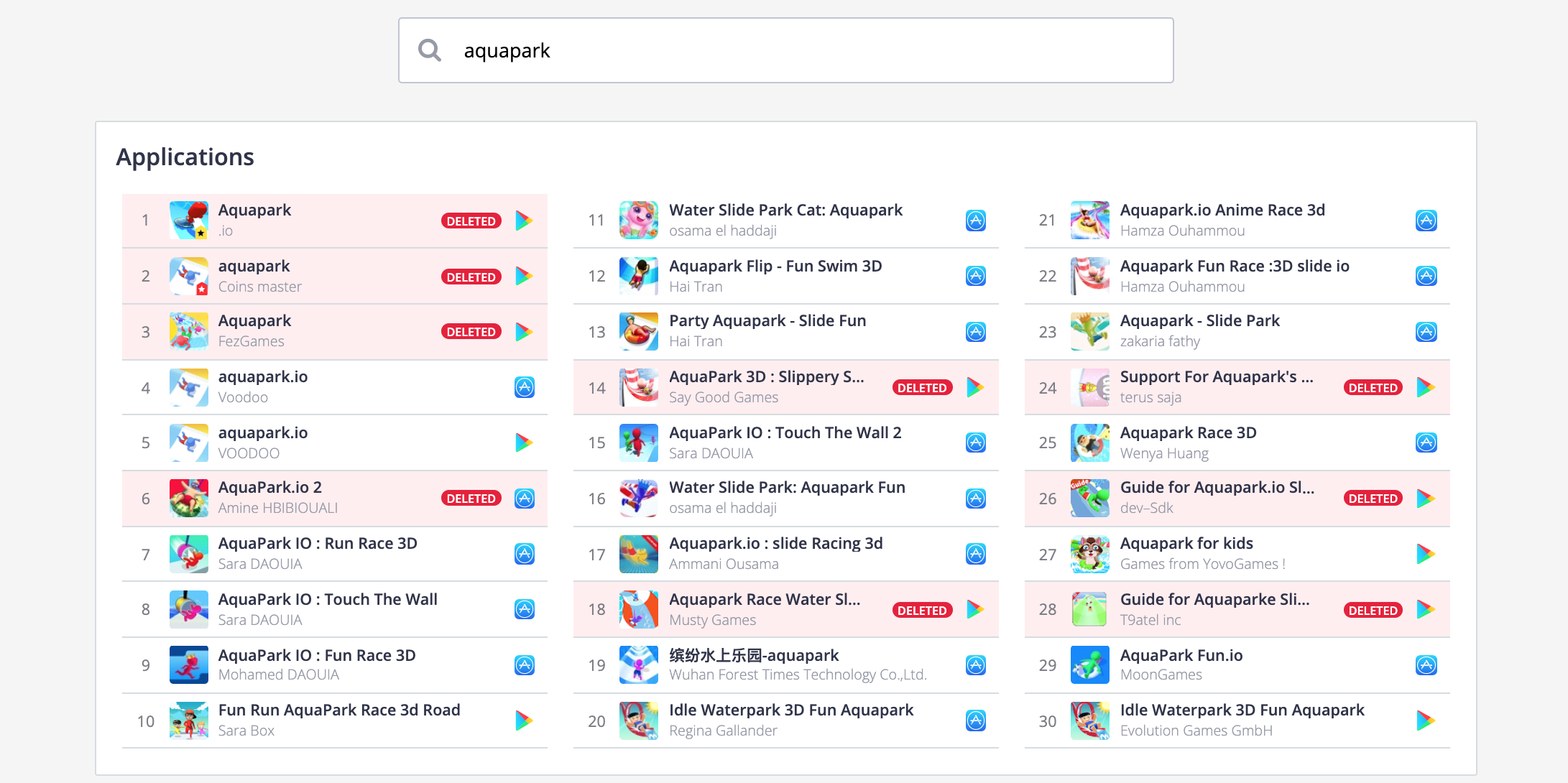
So, copying in mobile games is a complex issue, and no one can straightly say where is the line between taking inspiration and infringement. We all know that launching and user acquisition may be a pain but still wish developers to add some unique features to the mix.



